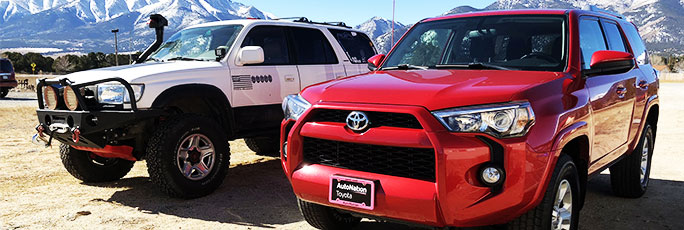-
Welcome to 4Runners.com!
You are currently viewing as a guest! To get full-access, you need to register for a FREE account.
As a registered member, you’ll be able to:- Participate in all 4Runner discussion topics
- Transfer over your build thread from a different forum to this one
- Communicate privately with other 4Runner owners from around the world
- Post your own photos in our Members Gallery
- Access all special features of the site
Toyota Unveils Sweeping Plans for New Battery Tech / EV
Discussion in '6th Gen 4Runners (2025+)' started by 4R777, Jun 13, 2023.






